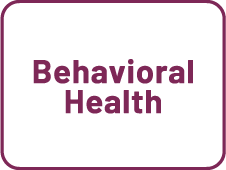Back-to-school time can be stressful for kids and parents alike. However, this year’s return to school looks unlike any before it. We’re facing even more unique challenges after a year of COVID shutdowns, online school, hybrid learning, and a partial return to school for some students. After such an inconsistent and chaotic year, the transition back can seem even more overwhelming.
Fortunately, there are strategies that can address and reduce stress, and help us and our kids prepare for the new school year. They’re not complicated but they do require being intentional and taking action. Not only can they help reduce back to school stress, they offer us the opportunity to connect with our kids and improve their overall mental health.
- Begin the conversation early. Set aside time to have a conversation with no distractions. Ask your kids prior to back to school time how they’re feeling about the return to school. Make it clear to them that you’re willing to listen to them with empathy and understanding, and without judgment.Let them know that there isn’t any “right” or “wrong” way to feel about the situation. Help them to identify what they’re feeling rather than assigning a value to those feelings. Validate their feelings. Let them know they are welcome to come talk with you again if they need advice, are struggling with something, or just need someone to listen.
- Provide consistency and stability when and where you can. Last year was unpredictable and this one may be as well. Part of the unique stress of this school year is the fact that we’re coming out of a very inconsistent school year and into one that may also look different from normal years. Therefore, it’s crucial to provide your kids with consistency and stability where you can, which is at home. Try your best to make meals, family time, sleep, and other routines as regular as possible.
- Encourage them to focus on what they can control. Much of life is outside of our control, and that lack of control can increase stress. Help your child focus on the areas where they do have control, such as choosing clothes and food for the next school day, finding a consistent place and time to do homework, and setting aside time for their self-care routine such as time outside, hobbies, and time connecting with friends. Even options and choices that seem like small things can help restore more of a sense of control and therefore reduce stress.
- Help them protect their body. During the teen years, sleep, exercise, and nutrition are important, and even more so when a teen is dealing with stress. Yet multiple studies in recent years have indicated that teens are not getting enough sleep. One of the ways parents can make sure that their teens are getting more sleep is by not allowing them to take their smart phones, tablets, or laptops into their bedrooms at night and to end screen time two hours prior to bedtime.
- Keep their schedule manageable. It’s excellent to encourage our kids to be high achievers, take challenging classes, and participate in a variety of extracurricular activities. However, it’s important to know how much is too much. Be vigilant that they don’t become overloaded. While we are indeed helping them prepare for adulthood, kids still need the time and opportunity to be kids. They also need time to allow their minds and bodies to be still. Having intentional downtime can not only reduce stress, it can improve their performance in school and extracurriculars.
- Look for signs of stress and anxiety. It’s important to be aware of the signs of a preteen or teen who may be struggling with elevated stress levels or anxiety. Some of the things to look for can include changes in sleeping or eating habits, mood swings, increased headaches and/or stomachaches, nausea, lack of energy, loss of interest in activities, and difficulty concentrating. Most importantly, keep an eye out for anything that you consider unusual for your child, especially if it continues over multiple days. If you notice changes, be sure to respond promptly by beginning a conversation. Let them know what you’ve seen and make it clear that you’re here to help.
- Connect with professional help. As much as we want to help our kids and can help them in many situations, it’s often a good idea to get support from a mental health professional. Even if your child isn’t dealing with a major mental or behavioral health challenge, working with a therapist or counselor can be a tremendous help. Sometimes preteens and teens can actually feel more comfortable being candid and open with someone who isn’t their parent, such as a mental health professional or peer support specialist. You can use this link to search for mental health support in your area.
Exercise can be a very healthy and effective way of dealing with stress and preventing some of the physical impact of stress as well. Meanwhile, adequate nutrition provides the fuel needed to navigate difficult times. Making sure that our teens are getting enough sleep, exercise, and nutrition sets them up for success.
These strategies are not only specific to back-to-school time but can be beneficial throughout the year. While many or most of these may seem like small and subtle changes, collectively they can add up to make big differences. And when times are stressful, keeping it simple can often be the best strategy of all.





